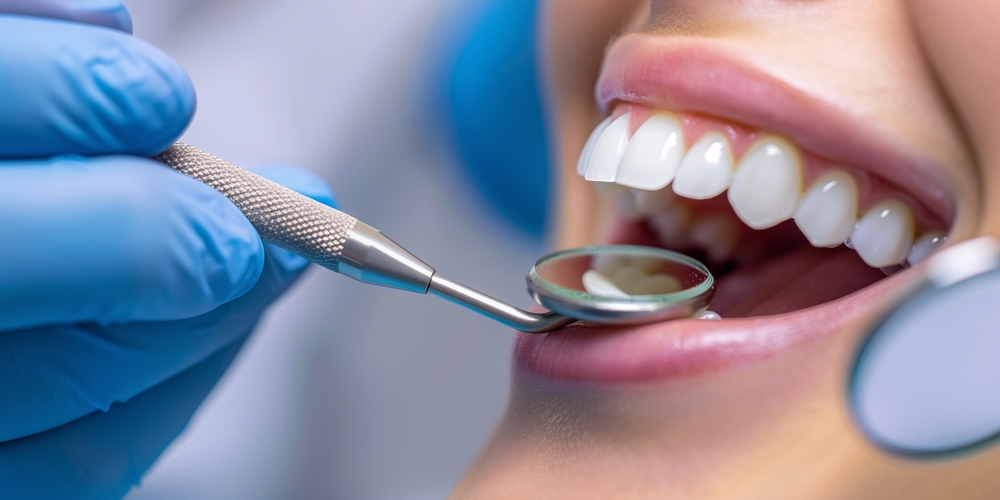Conditions vs. Tooth Pain: Discover the Reasons Behind the Ouch!

Tooth pain can be an alarming signal, indicating anything from minor irritations to serious health conditions. Identifying the cause behind the discomfort is essential for determining the right treatment. Here’s an in-depth look at various conditions linked to tooth pain and expert commentary from Ashraf Dentistry to help guide you in understanding their implications. (Source: WebMD, Conditions That Make Your Teeth Hurt, Medically Reviewed byJabeen Begum, MD on August 28, 2023
Written by Rachel Reiff Ellis, https://www.webmd.com/oral-health/ss/conditions-teeth-hurt ).
You Cope by Clenching
Clenching or grinding your teeth (bruxism) often occurs unconsciously during sleep or stressful situations. Over time, this can lead to enamel wear, tooth sensitivity, and even fractures.
“Chronic clenching exerts immense pressure on the teeth and jaw, contributing to discomfort and damage. Managing stress and using a custom mouthguard can protect enamel and prevent future issues,” says Ashraf Dentistry.
Your Daily Grind
Grinding your teeth, particularly at night, can cause headaches, jaw pain, and worn teeth. It may also lead to temporomandibular joint disorder (TMD).
“Long-term grinding can lead to severe enamel erosion and muscle fatigue in the jaw. Using protective devices like mouthguards and scheduling regular dental checkups can help prevent serious damage,” Ashraf Dentistry advises.
You Overdo Oral Rinses
Overusing mouthwash with high alcohol content can irritate soft tissues and contribute to tooth sensitivity.
“Some mouthwashes, while beneficial in moderation, can dry out the oral cavity and inflame sensitive areas. Opt for alcohol-free rinses and consult a dentist if irritation persists,” suggests Ashraf Dentistry.
You Push Your Body
Intense endurance training in athletes is associated with enamel erosion. Researchers believe this may result from exercise reducing saliva flow or altering its protective properties.
“Intense physical activity may reduce saliva flow. For athletes, maintaining hydration and chewing sugar-free gum during workouts can help stimulate saliva production and protect enamel,” advises Ashraf Dentistry. “Regular fluoride treatments or sealants may also provide additional protection against cavities, especially for those with rigorous exercise routines.”
Your Sinuses Are Stuffed
A sinus infection can create pressure and pain that radiates to the upper teeth.
“Sinus-related toothaches can mimic dental pain but typically affect multiple upper teeth. Consulting both a dentist and a physician helps pinpoint the cause and determine whether urgent dental care is necessary,” recommends Ashraf Dentistry.
You’ve Got a Bun in the Oven
Pregnancy-related hormonal changes can lead to swollen gums, increased sensitivity, and a higher risk of gingivitis.
“Pregnant women are especially prone to gum disease due to hormonal fluctuations. Gentle cleanings and regular dental visits are important to prevent complications,” emphasizes Ashraf Dentistry. If any severe pain arises, consider seeking an emergency dentist in Waterloo.
Your Jaw Is Jammed
Temporomandibular joint (TMJ) disorders can cause jaw pain, headaches, and toothaches due to misalignment or inflammation.
“TMJ disorders can result from multiple contributing factors, including stress and misaligned teeth. Early intervention, such as jaw exercises and splint therapy, can relieve discomfort and prevent long-term damage,” says Ashraf Dentistry. Sedation dentistry may be beneficial during extensive treatments to ensure patient comfort.
Nerve Damage
Dental nerve damage, often caused by trauma or decay, can trigger sharp, shooting pain.
“Nerve-related pain is typically intense and difficult to ignore. Treatments like root canals or desensitizing therapies can provide relief while preserving the affected tooth,” Ashraf Dentistry explains. Immediate evaluation through urgent dental care is recommended for severe nerve-related pain.
Heart Problems
Heart-related issues can sometimes present as tooth pain, particularly in the lower jaw.
“When tooth pain is accompanied by chest discomfort or shortness of breath, it could be a warning sign of cardiac issues. Immediate medical attention is crucial,” warns Ashraf Dentistry.
You’ve Brightened Your Smile
Overuse of whitening products can lead to temporary sensitivity.
“Whitening agents can penetrate enamel and irritate the dentin layer beneath. Moderation and professional guidance are essential to prevent long-term damage,” recommends Ashraf Dentistry.
Your Gums Are Starting to Give
Receding gums reveal the roots of the teeth, increasing sensitivity to temperature and touch.
“Gum recession often results from aggressive brushing or periodontal disease. Scaling, root planing, and soft tissue grafts can help restore comfort and protect exposed areas,” Ashraf Dentistry explains. Early intervention through urgent dental care can prevent worsening conditions.
You Need a Cancer Check
Persistent mouth pain or sores may be an early sign of oral cancer.
“Oral cancer screenings are critical, especially when persistent pain or lesions occur. Early detection greatly improves treatment outcomes,” advises Ashraf Dentistry.
Your Diet Is Too Acidic
Acidic foods and drinks, like citrus fruits and sodas, can erode enamel and cause sensitivity.
“Reducing acidic intake and rinsing with water afterward can minimize enamel damage. Fluoride treatments and remineralizing toothpaste offer additional protection,” Ashraf Dentistry suggests. Emergency dental evaluations may be required if pain persists.
You Throw Up a Lot
Frequent vomiting, as seen in conditions like bulimia or morning sickness, exposes teeth to stomach acids, leading to erosion.
“Protecting enamel from acid erosion involves more than brushing—rinsing with water or a fluoride solution post-vomiting can safeguard teeth,” notes Ashraf Dentistry.
You Don’t Drink Enough Water
Not drinking enough water means there is less saliva to wash away food debris, neutralize acids, and protect teeth. Saliva also contains essential minerals like fluoride, which help strengthen enamel and prevent decay.
“Maintaining adequate hydration is crucial for promoting healthy saliva production. Without enough water, the protective benefits of saliva, such as clearing debris and providing fluoride, are diminished,” Ashraf Dentistry advises. For severe cases of dry mouth, a dentist in Waterloo can provide solutions through urgent dental care.
Tooth pain can be a symptom of numerous underlying conditions, from temporary sensitivities to systemic health concerns. Timely identification and professional consultation are essential for effective treatment and long-term oral health. If you experience persistent discomfort, seeking urgent dental care is vital for diagnosis and relief.
